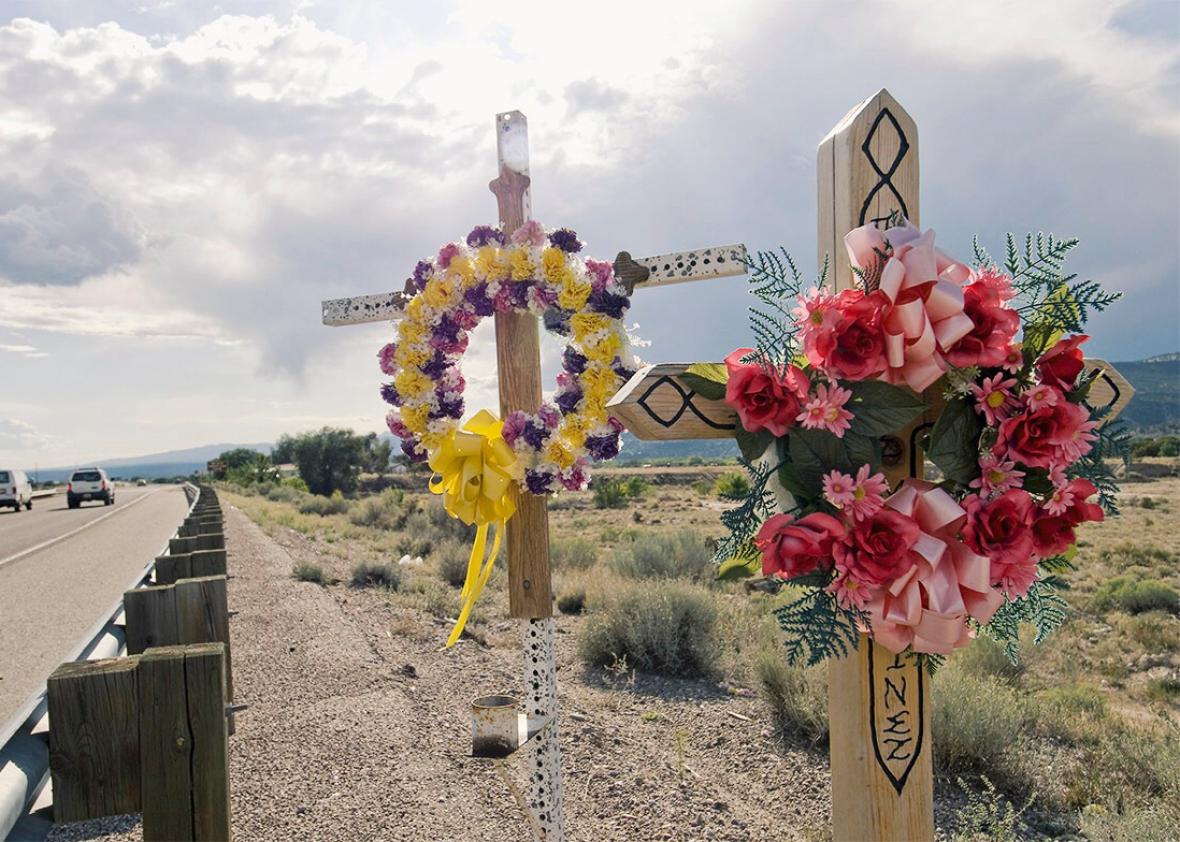This article originally appeared in the blog Walking the Walk: Urban Design From the Front Lines.
Last week I had one of those experiences where a number stunned me. Maybe you’ve run across that—a statistic at the right time and the right place that really stopped and made you think.
Here’s the interesting part, at least for me: I know this number. Or at least, I know the much larger version of it. As a planning and transportation geek, I understand that each year, in the United States, about 35,000 people are killed in car crashes and about 2,000,000 are injured. I’ve known those numbers for years and relayed that information in numerous presentations.
But for some reason, last month, while driving on Interstate 95, a particular version of that statistic caught my attention. The number was on one of those electronic signs, above the roadway. The sign said:
716 dead on Georgia roadways this year. Arrive alive.
Seven hundred and sixteen. By mid-July. Perhaps it’s because it was in blazing numbers above the roadway, or perhaps I was just in a mood to pay attention. But it got me. Seven hundred and sixteen divides out to more than 100 people per month. Just in Georgia.
I can’t help but think about the comparisons with other modes of travel. For example, I’m fairly certain that if a plane fell out of the sky and killed 100 people, once a month, no one would be buying plane tickets. Airline travel would be decimated, and we’d have daily news stories about WHAT TO DO.
Earlier this year eight people died in a tragic Amtrak wreck in Philadelphia. Eight people. Congressional hearings were held. Katie Couric tweeted it was “scary.”
I don’t mean to minimize the deaths of eight people, but eight people die every three days on our roadways in just this one state. More than 1,200 will die this year. There are 253 cities in Georgia that have fewer than 1,200 total residents. If the national ratios remain consistent, that also means about 6,000 people will be injured in Georgia every month, or 72,000 in a year. Eleven cities in the entire state have more than 72,000 people. Wonder why there are so many ads for lawyers specializing in injury accidents?
But in the end, after all the numbers, after all the gruesome crashes, with countless little crosses lining the roadways, here’s what I’ve learned: We don’t really care. We don’t really care how many people die or are injured. We have come to accept that it’s just part of life in modern America. It’s no different than the sun coming up in the morning, or the tides rolling in and out every day. It just is what it is.
Even if we did care, we wouldn’t agree on what to do about it or wouldn’t want to do the things that would make the numbers drop.
We think, for example, that the answers are safer cars, wider roads, and laws against texting. What we don’t talk about is that the “safer” we make cars and the wider we make the roads, the more we enable bad behavior and faster driving. And to put it bluntly, speed kills. Don’t even make me bring up the other obvious point, which is that we’ve designed our communities to compel driving for each and every activity of life. Oops—you just made me bring it up.
The truth is, driving is dangerous. It’s the leading cause of death for nearly everyone younger than 45. It’s probably the most dangerous single thing you do every day. The only truly effective ways to save lives are to make driving optional instead of a mandatory fact of life, to narrow roads so as to slow speeds, provide great public transportation options, and enforce strict penalties for bad driving behavior.
But the truth is, we won’t do those things, except in a few “special” places where we’ve deemed them acceptable. Even then, it’s very difficult. The wailing and gnashing of teeth when it’s proposed to slow down cars or prioritize walking and biking are something to behold. Those objections are somewhat fewer today than, say, 10 years ago, but still they dominate.
It’s also not that we don’t have the money or that making the right changes wouldn’t actually work. In fact, it’s quite the opposite. Making our world less about driving everywhere quickly is far cheaper than the alternative. It saves us money in the short term and the long term, which is kind of a win-win, isn’t it?
So, we can do these things, we can make our cities, towns, and countryside safer. We can provide real, meaningful options of how to get around. We have the money; we have the knowhow. Now, we just need to care.
